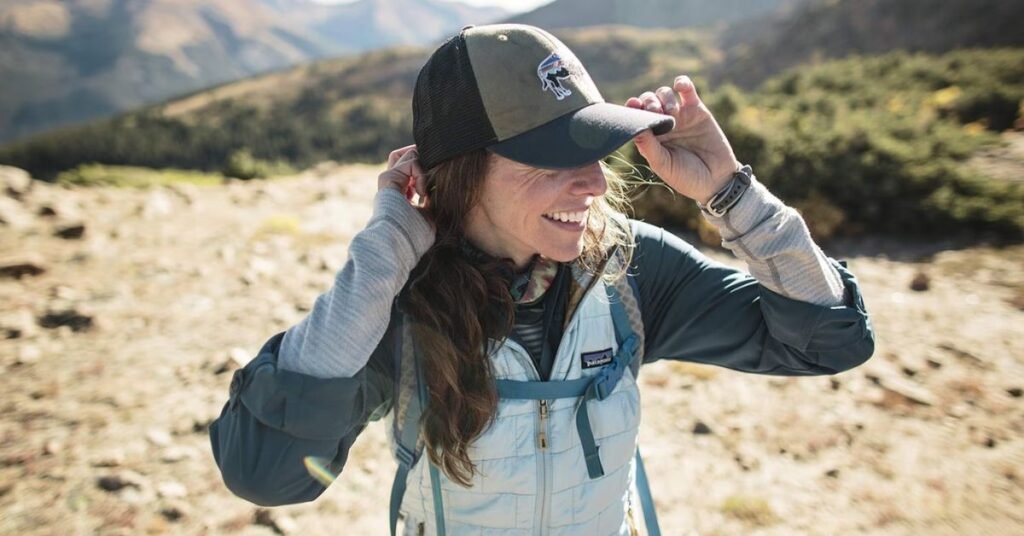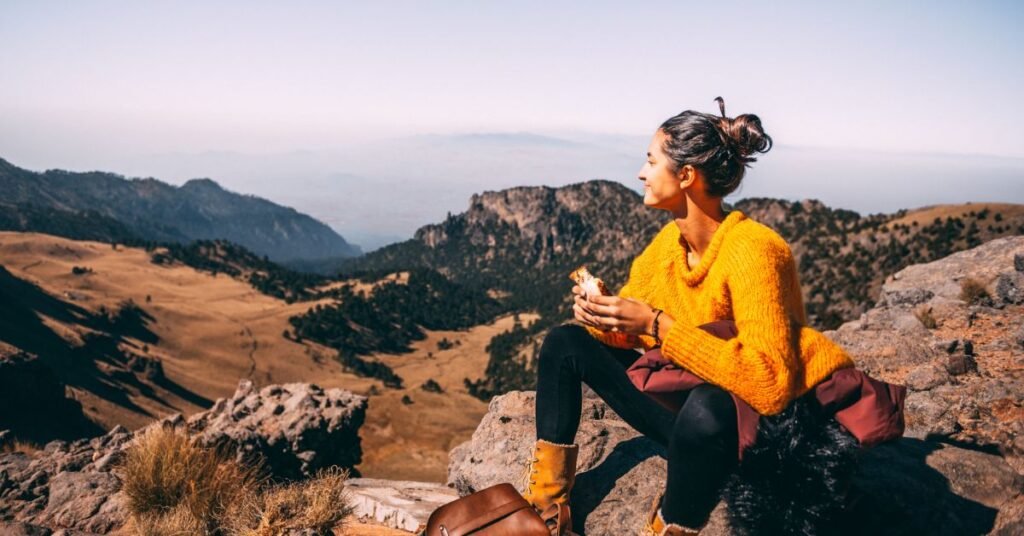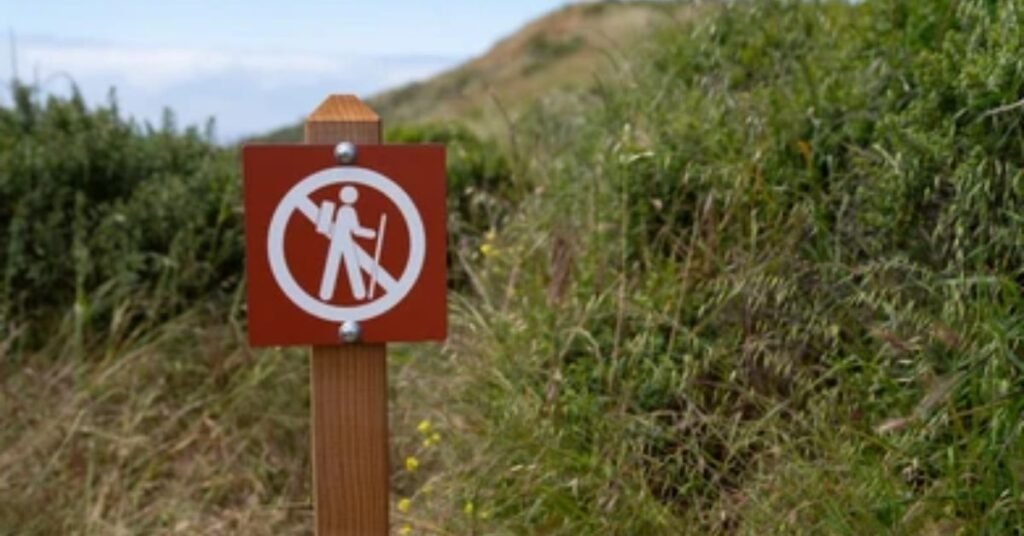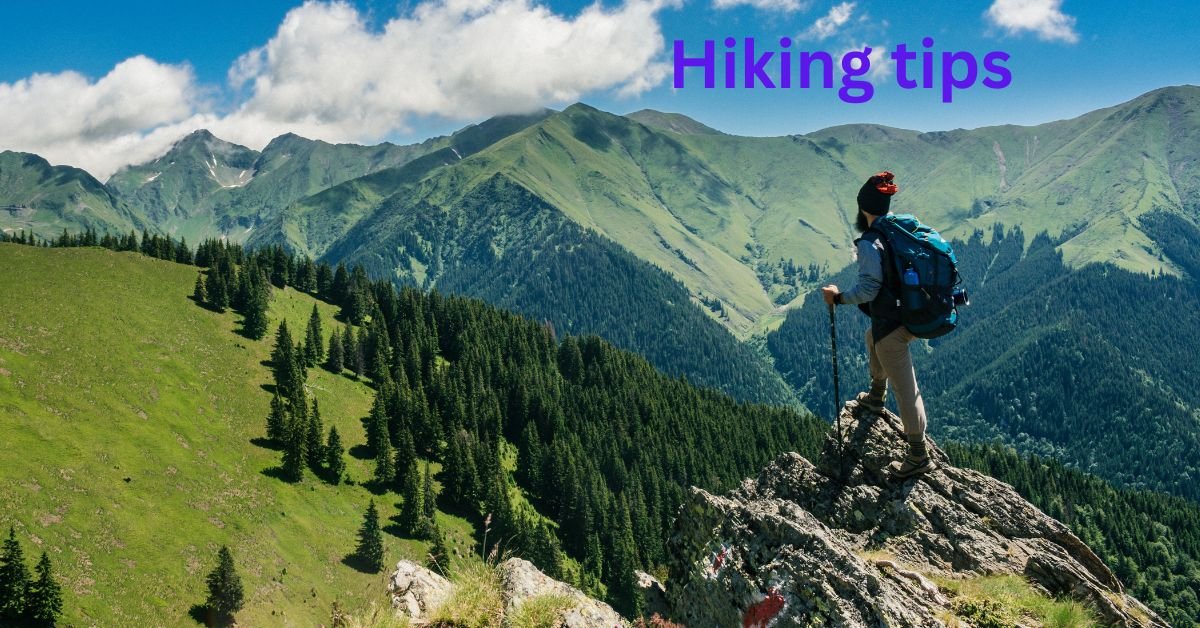Hiking on natural pathways in the woods, mountains, forests, or other scenic areas is a popular outdoor pastime.
Hiking is a terrific way to exercise, enjoy nature, and connect. Starting can be scary for beginners.
This post covers ten basic hiking recommendations for a safe and fun trip.
Table of Contents:
1. Prepare Your Route
2. Weather Forecast
3. Select Hiking Gear
4. Dress comfortably.
5. Hiking Boots
6. Backpack it
7. Hydrate and Bring Snacks
8. Slow Down
9. Conserve Wildlife
10.No Sign
11. Conclusion

1. Prepare Your Route:
Before hiking, plan your route.
Check the trail’s distance, elevation gain, and difficulty to make sure it’s acceptable for your fitness level.
Explore the area with maps and trail guides.

2. Weather Forecast:
Check the weather before hiking. Prepare for sudden weather changes, especially in hilly places.
Even if it’s sunny when you trek, bring rain gear and warm clothes.

3.Select Hiking Gear:
Hike safely and comfortably with the correct gear. Start with a nice backpack that fits all your gear.
Buy good hiking boots, a map and compass, and a headlamp or flashlight. Pack trekking poles for stability.

4. Dress comfortably:
Hiking requires comfortable clothing. Choose lightweight, moisture-wicking textiles for comfort.
Cotton retains moisture and causes chafing and blisters. Wear layers to acclimatize to the temperature.

5.Hiking Boots:
Hiking safely and comfortably requires good boots.
They protect your feet from rocks and debris, give stability, and prevent blisters. Buy well-fitting, ankle-supporting footwear.

6.:Backpack :
Carrying snacks, water, and supplies requires a backpack. Make sure your backpack is comfy and evenly weighted.
Rain covers and pack liners keep stuff dry.

7. Hydrate and Bring Snacks:
Hiking requires hydration and food. Bring enough water for your hike and extra for emergencies.
Trail mix, energy bars, and fruit are energy-boosting snacks.

8. Slow Down:
Beginners may find hiking physically hard. Pace yourself and take frequent breathers. Don’t force yourself.
Start with shorter hikes and progress to longer, harder ones.

9. Conserve Wildlife:
Stay on trails and don’t disturb wildlife. Avoid wildlife and don’t feed them. Pack and dispose of your rubbish.

10.No Sign:
Leave no trace by packing out your rubbish. Avoid burning and camping in prohibited locations.
Cross private property with authorization.
Conclusion:
In conclusion, beginners can enjoy hiking if they are prepared and follow basic safety and comfort measures.
Planning your route, checking the weather forecast, choosing appropriate clothing and footwear,
carrying a backpack with essential gear and refreshments, pacing yourself,
and respecting wildlife and nature can make for a successful and memorable hike.
To protect the environment for future generations, leave no trace and pack out all waste.
With these ten basic hiking techniques, you may confidently hike and enjoy the outdoors.
